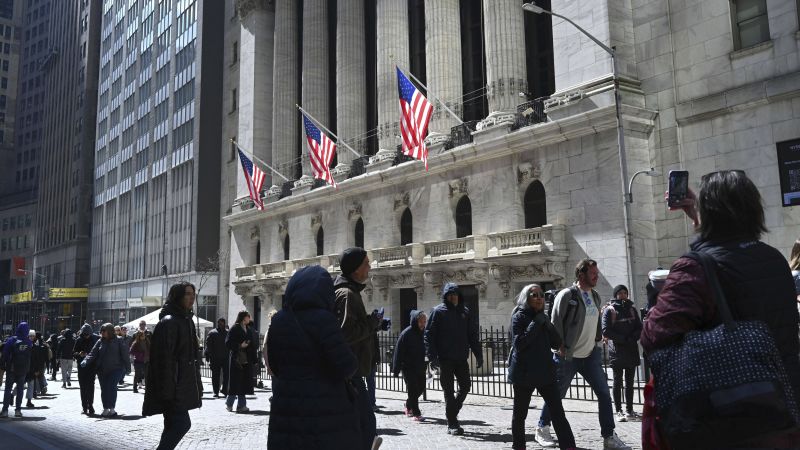Amidst concerns over inflation and the potential impact on the stock market, big banks, including JPMorgan Chase and BlackRock, are set to kick off earnings season. Investor sentiment has been shaken as the latest Consumer Price Index data showed that inflation grew faster than expected in March, causing the S&P 500, Dow Jones Industrial Average, and Nasdaq Composite to decline. With the market now relying more on earnings to drive gains, there is increased pressure on corporations to perform well during this earnings season.
One key factor that investors will be watching for is signs of stress on the consumer, particularly regarding spending habits. Despite interest rates being at a 23-year high, consumer spending has remained strong overall, but concerns exist about lower-income individuals tightening their budgets due to factors like surging gas prices. These factors will be crucial for banks, as they navigate the potential impact of inflation and high interest rates on their businesses.
The economic and inflationary landscape has led Wall Street to revise its expectations for Federal Reserve rate cuts this year. Previously expecting multiple cuts, the market now anticipates only one or two cuts in 2024, if any at all. This shift in expectations comes as traders have reduced their expectations for a rate cut in June, down from 56% to 19%. The current environment presents a challenge for banks, as high rates can benefit them through increased net interest income, but also pose risks to financial stability.
JPMorgan CEO Jamie Dimon has cautioned that a recession remains a possibility, despite recent economic data reflecting strength. Dimon highlighted potential scenarios, including rates surpassing 8% and stagflation, where inflation remains high alongside an economic downturn. While recent fears of a recession have eased, Dimon believes that markets are currently overestimating the probability of a soft landing, with risks still present in the economy.
In light of rising inflation, President Joe Biden has acknowledged the need for further action to bring down costs for American families. Inflation surged to a 3.5% increase for the 12 months ending in March, marking the highest gain in the past six months. This persistent inflation poses challenges for the Federal Reserve, with officials expected to continue monitoring the situation closely and potentially keeping rates higher for longer if inflation remains elevated.
Federal Reserve officials have expressed concerns about the possibility of stubbornly high inflation, despite expectations for a slowdown throughout the year. The Fed’s key interest rate remains at a two-decade high, with officials aiming to see evidence that inflation will return to their 2% goal in the medium term. Economists anticipate that slowing rent growth and other factors will eventually impact inflation gauges, but the timeframe for this remains uncertain. Insurance costs have also contributed to inflationary pressures, adding complexity to the economic landscape.


